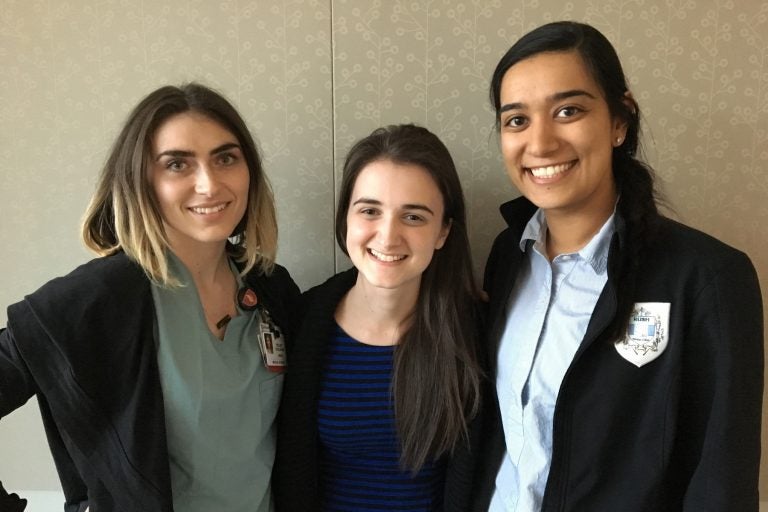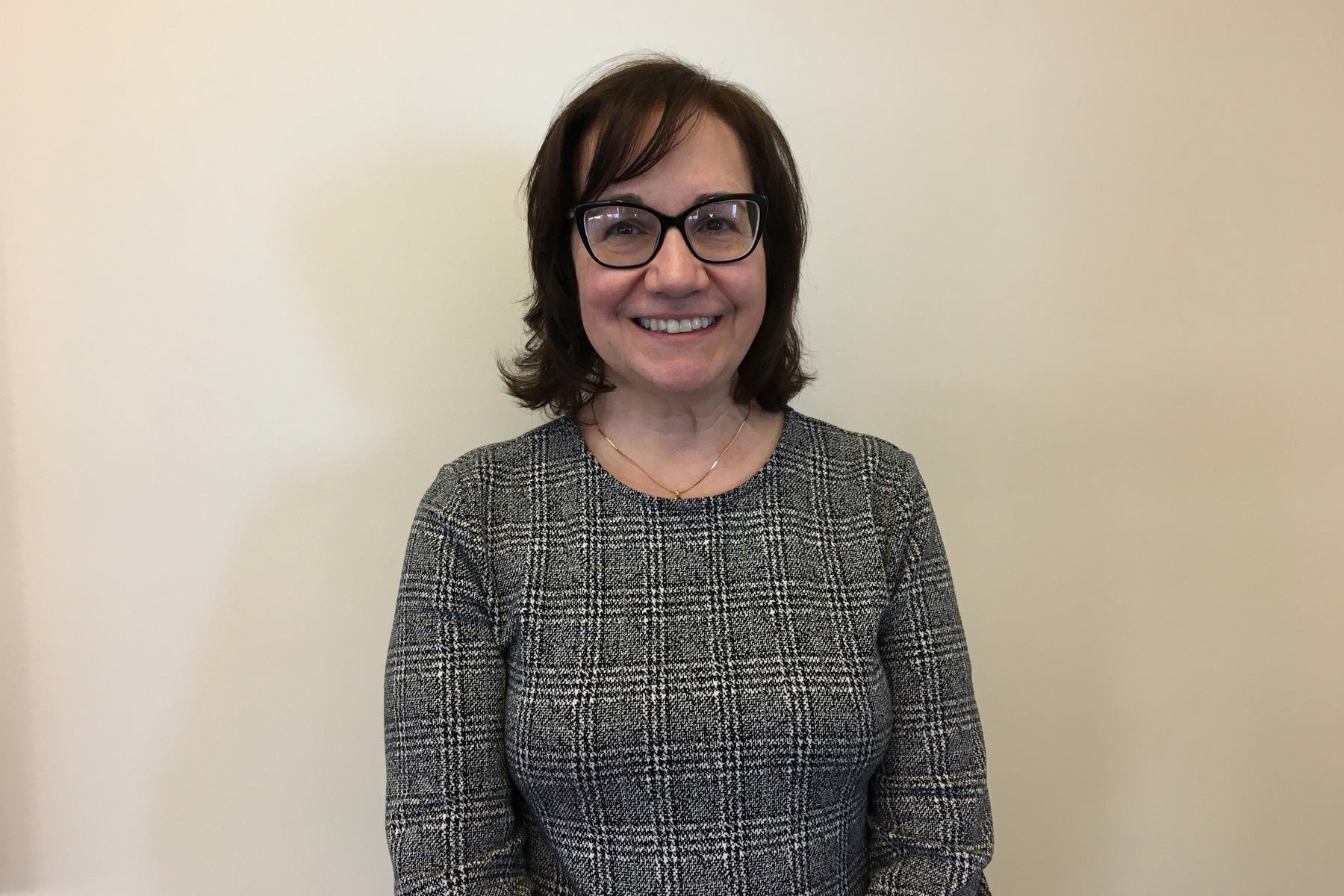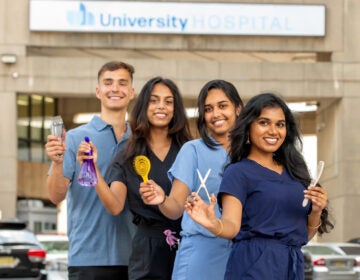Cooper medical students with disabilities push for culture change in medicine
Many doctors and students hide disabilities out of a real 'fear of judgment, bias, and skewed perception of ability,' a report finds.

Third-year medical students (from left) Kelsey Coolahan, Sami Kennedy, and Priyanka Chugh are pushing for disabilities awareness at Cooper Medical School at Rowan University. (Elana Gordon/WHYY)
Medical school can be intimidating, but when Sami Kennedy got to Cooper Medical School of Rowan University in Camden three years ago, she had some questions and concerns beyond the course load and competition.
Diagnosed with ulcerative colitis while growing up, she had always been open about her condition. But as she entered a field that champions health almost to an extreme, Kennedy wasn’t sure whether others would relate.
Then she met other students with a chronic condition.
“I started to realize this is not all that rare,” Kennedy said. “We just don’t talk about it.”
Kennedy and classmates Priyanka Chugh and Kelsey Coolahan formed a group to promote disabilities awareness.
“A lot of students came to us and talked about having some difficulties,” said Priyanka Chugh, a classmate and co-founder who has celiac disease.
Fast forward to this spring, three years into med school.
Kennedy said nearly one-fifth of Cooper students have joined their list serve. The group has met with administrators about improving disabilities policies and have organized schoolwide awareness events, featuring doctors with disabilities.
“They have been tremendous champions of this, educating our whole team about this,” said Dr. Annette Reboli, dean of Cooper Medical School. “There was a time that people in medical education really didn’t understand the needs of students, residents, and faculty with disabilities. And for some individuals, that could have made tremendous contributions, it was almost career capping for them.”

While a lot has changed since the era before the Americans with Disabilities Act, a recent report from the Association of American Medical Colleges found that the culture and environment surrounding students with disabilities really vary from place to place, with some medical institutions doing far better than others.
Many doctors and students hide disabilities out of a real “fear of judgment, bias, and skewed perception of ability,” the report found.
That may be why just under 3 percent of medical school students have disclosed a disability and, as a result, get accommodations for it. That’s far less than the proportion of Americans with disabilities — nearly one-fifth — and lower still than the percentage of graduate students in other fields.
One major recommendation of the report is that schools have a specialist trained in both disabilities services and medical education.
“That’s spot on,” said Reboli. “When we went back just recently because of more students coming forward asking for accommodations, we saw several deficits. We needed to have an expert here on site.”
Cooper then sent two advisers to get special training in disabilities.
“I don’t see this as one and done,” she said. “I think this is going to be a continued target to continue to look and refresh our policies.”
The students, meanwhile, have connected with other medical students with disabilities from around the country, and they recently helped formed a national coalition. Back at Cooper, they’ve put together a “grand rounds” featuring a disabilities expert and co-author of that AAMC report for Tuesday. She’ll present to the entire school and faculty.
Reboli said such awareness and support are critical, leading to better doctors who, in turn, can provide better care to patients.
Kennedy agreed.
“We bring something to the table that is so powerful,” she said. “Having experience living with a disability or caring for someone with a disability makes us better physicians because we have developed a certain level of empathy and an understanding of that principle that harm can come in ways that are not overt, but just a lack of awareness and a lack of compassion.”
Tune into The Pulse later this month to learn more about doctors with disabilities.
WHYY is your source for fact-based, in-depth journalism and information. As a nonprofit organization, we rely on financial support from readers like you. Please give today.




